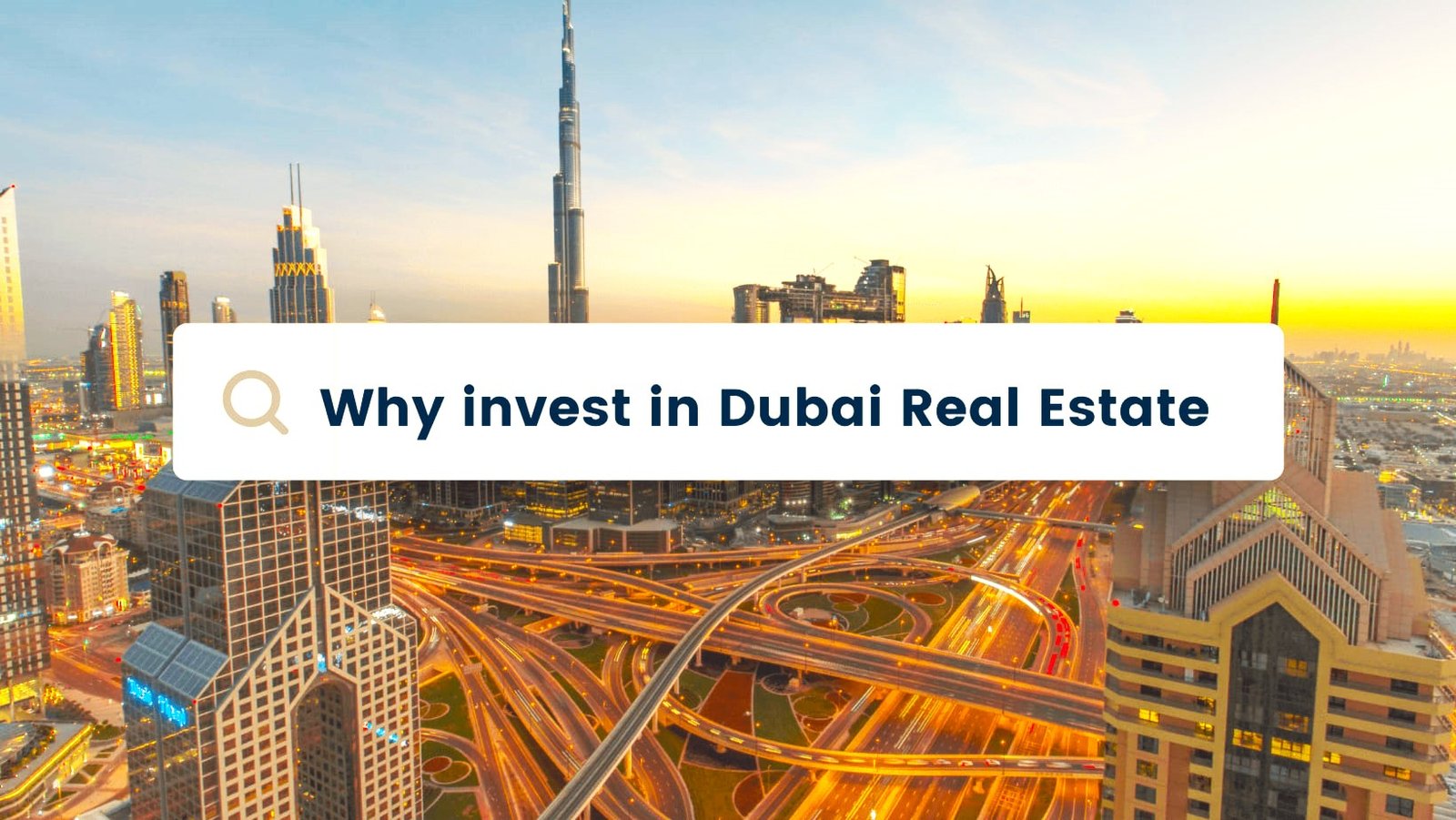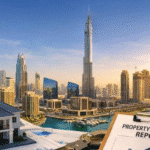Dubai is one of the world’s fastest-growing real estate markets and remains a top choice for foreign investors. But while the prices, location, and glamour are obvious draws, there are less visible costs that can significantly affect your budget. If you’ve ever wondered why to invest in Dubai, the answer lies not just in its luxury and lifestyle but also in the strong returns and stability it offers.
In this in-depth guide, you’ll discover:
- Major benefits of investing in Dubai property
- Hidden and extra costs that many buyers overlook
- How to budget smartly to avoid surprises
- Tips to get the best value and protect your investment
Why to Invest in Dubai Real Estate?
Before we dive into the hidden fees, it helps to first understand why Dubai continues to attract investors from around the world.
Key Advantages:
Freehold Ownership for Foreigners – You can own property outright in designated areas, with full rights to buy, sell, or lease. (Learn more in our guide on how foreigners can buy property in Dubai).
Strong Rental Yields and ROI – Well-located apartments and villas often deliver attractive rental income, especially in popular neighbourhoods.
No or Low Property Taxes – Dubai’s property tax regime is very favorable. There’s no capital gains tax for most individuals; minimal annual property charges.
World-Class Infrastructure & Amenities ,Excellent transport, international schools, top healthcare, shopping, tourism, entertainment.
Safety & Stability – A politically stable environment, robust legal framework, and transparent property registration systems boost confidence. (Read why Dubai is the safest city for expats).
Lifestyle Appeal – Luxury living, beaches, high end dining, cosmopolitan culture, sunshine year-round.
Given these benefits, property in Dubai has both lifestyle and investment appeal. But smart investors always account for all the costs, not just the asking price.
Hidden Costs of Buying Property in Dubai: What Many Ignore
When you see a “for sale” price, what’s not included can add up. Here are five major hidden costs that often catch buyers off guard.
Dubai Land Department (DLD) & Registration Fees:
These are government charges tied to registering property and official ownership documentation.
- Transfer Fee: Typically 4% of the property’s purchase price. Sometimes the buyer and seller split this—but many private deals require the buyer to pay the full 4%.
- Title Deed Issuance Fee: A fixed amount (e.g. AED 250).
- Registration Fee: Varies with value. For example:
- AED 2,000 if the property is under AED 500,000
- AED 4,000 or more if it’s above that threshold
- Oqood Fee (for off-plan properties): Another ~4% to register the contract in DLD when buying properties under construction.
Real Estate Agent Commission:
Using a real estate agent is typical and often advisable—but the commission adds to your total cost.
- Standard agent commission: ~2% of the property price.
- Plus VAT on the commission (5%) in many cases.
Always clarify who pays the commission at the outset: sometimes buyer, sometimes seller, sometimes shared.
Legal, Conveyancing & Administrative Costs:
Buying property involves paperwork, legal oversight, and sometimes specialized advisors.
Conveyancing or Legal Advisor Fees: To prepare and review contracts, ensure title is clean, handle documentation. Could range from AED 6,000 to AED 10,000 or more depending on complexity.
Additional admin or processing fees from agents, or from the seller’s side.
If using a mortgage, banks might insist you use their approved law firms, which can increase costs.
Mortgage-Related Fees:
If you are financing your purchase, you’ll incur several extra charges beyond just the interest and down payment.
- Mortgage Arrangement / Processing Fee: Commonly 0.5%–1% of the loan amount.
- Mortgage Registration Fee (DLD): ~0.25% of the loan value.
- Valuation Fee: Banks require a property valuation; fees for this can range (e.g. AED 2,500-3,500 depending on property type).
- Issuing Mortgage Deed: Additional fixed charge (e.g. AED ~290 or more).
- No Objection Certificate (NOC) from Bank: Some banks charge to issue NOC for property transfer; this could be hundreds to few thousands of AED.
Developer & NOC Fees:
Especially in secondary market or off-plan transactions, developers or authorities often require certain certificates or fees.
- NOC (No Objection Certificate): Required from the developer to transfer ownership. Costs vary, often AED 500 to AED 5,000 depending on project and developer.
- Outstanding Service Charges: Before transfer, you might need to settle unpaid maintenance or service fees.
- Developer Transfer Fees: Some developers charge an additional fee for administrative or paperwork processing during ownership change.
- Total Cost: How Much Extra Should You Budget?
Putting all those fees together, the extra costs can sum to 5%-10% or more of the purchase price (often more in off-plan cases). It depends on property value, developer, financing method, and whether it’s new or resale.
Here’s a quick estimated breakdown:
|
Cost Type |
Estimate % or AED |
Notes |
| DLD Transfer Fee | ~4% of purchase price | Often main big cost |
| Agent Commission + VAT | ~2% + 5% VAT | Clarify who pays |
| Mortgage & Valuation Fees | ~0.5%–1.5% + fixed AED fees | Depends on loan amount & bank |
| Conveyancing & Legal | Fixed AED 5,000–10,000+ | Varies by complexity & property value |
| NOC / Developer Fees | AED few hundreds to thousands | Depends on developer |
Why the Investment Still Makes Sense Despite Hidden Costs
Even with these additional expenditures, many investors find Dubai real estate holds strong value. Here’s why:
- Expected Appreciation: Prime locations generally increase in value over time.
- High Rental Demand: Especially in popular projects, you can achieve solid rental yield.
- Developer Incentives: Some developers offer payment plans, waivers, or reduced fees to attract buyers.
- Flexibility: Off-plan projects often let you pay in instalments, which can ease cash flow.
- Resale or Secondary Market Gain: Buying well, in up-and-coming communities, can yield gains when selling. Alternatively, some investors prefer leasing in Dubai for flexibility.
Tips to Be Smart & Avoid Surprises
To protect your investment and make a well-informed purchase, use these guidelines:
- Get a Full Cost Estimate Early: Ask seller, agent, or developer for all fees: DLD, transfer, registration, legal, valuation, NOC etc.
- Read the Memorandum of Understanding (MOU) Carefully: Ensure it specifies who pays what,for example, NOC fees, outstanding service charges.
- Use Trusted Legal Help: Especially if you’re foreign or the deal involves off-plan contracts. Conveyancers, real estate lawyers add cost but help avoid legal pitfalls.
- Compare Mortgage Offers: Interest rates, fees, down payment requirements differ between banks. Factor in all costs (not only interest).
- Check Developer’s Reputation: Developers with good track records often have fewer surprises in fees, delays, or unexpected charges.
- Inspect Secondary Market Carefully: In resale property, check for existing unpaid service charges, maintenance dues, or required repairs.
Frequently Asked Questions (FAQs)
- How much are the DLD fees for a AED 2,000,000 property?
Transfer fee: approx AED 80,000 (4%). Plus registration, title deed, etc., add thousands.
- Who typically pays the commission & NOC fees? Buyer or seller?
It depends. Real estate practice sometimes expects buyer to cover agent’s commission; NOC fees often negotiated. Ensure the MOU is clear.
- If buying off-plan, do hidden fees tend to be higher?
Yes, off-plan purchases often involve more extra fees (Oqood, developer transfer, instalments, registration later).
- Can I avoid some of the fees?
Possibly negotiate some fees (NOC, developer fees), but government fees (like DLD transfer) are mandatory and non-negotiable.
Final Thoughts
Investing in Dubai real estate remains a compelling option in 2025.if you plan properly. Recognise that the price you see is not the full cost. Hidden fees like DLD charges, legal & conveyancing fees, mortgage arrangement costs, developer or NOC fees can add significantly to your outlay.
If you account for them in your budget, you can make a smarter decision and avoid unpleasant surprises. Dubai’s combination of infrastructure, regulation, rental demand, and lifestyle plus your due diligence can deliver strong returns.
At Hundred Homes, we guide investors through every step of the journey—from finding the right property to understanding hidden costs—so you know exactly why to invest in Dubai with confidence. . Contact us today to start your property journey.





